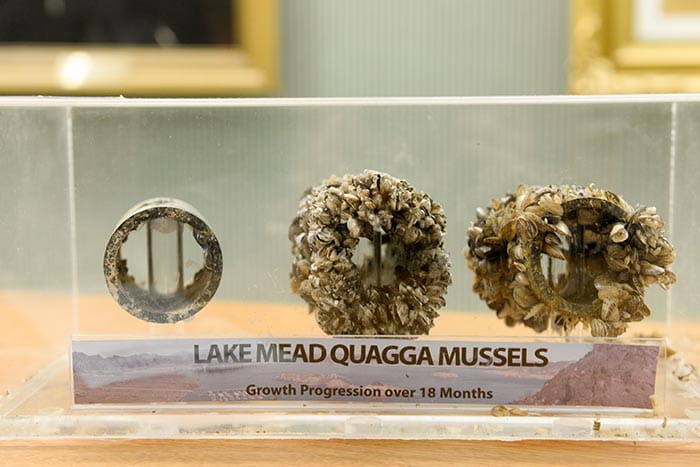Released on May 8, 2017
The Government of Saskatchewan is proclaiming May 7 to 13 as Aquatic Invasive Species Awareness Week to highlight prevention and make people aware of the risk to the province.
Aquatic invasive species (AIS) such as zebra and quagga mussels are a significant threat to Saskatchewan’s lakes and waterways. These small but destructive species have already been discovered in Ontario, Manitoba and 34 states, including Montana and North Dakota.

“Invasive mussels and other species can be extremely difficult to manage if they become established in a waterbody,” Environment Minister Scott Moe said. “Prevention is the most effective solution to aquatic invasive species. The province will continue to educate boaters and other recreational water users to CLEAN, DRAIN, DRY boats, watercraft and equipment. This includes boaters visiting Saskatchewan, moving between water bodies, and returning home from out-of-province.”
In 2016, the ministry invested more than $450,000 to prevent aquatic invasive species, including resources to inspect 776 watercraft and decontaminate 25 watercraft. Two of the decontaminated boats had visible mussels attached.
Seventy waterbodies across the province were also sampled through two monitoring programs. The 2017-18 budget includes up to $500,000 for AIS initiatives. This includes funding for education and awareness, inspections and decontaminations.
The government is also increasing its focus on high-risk watercraft entering the province in 2017. The province will conduct roadside watercraft inspections this year, with a focus on Manitoba and U.S. borders, and high-risk waterbodies and events, such as fishing and boating events and wakeboard competitions, which see an increased number of boats entering the province from other jurisdictions.
The ministry has intercepted boats in Saskatchewan and in neighbouring jurisdictions over the past several years. There has been no record yet of zebra or quagga mussels in Saskatchewan waterways.
Saskatchewan also collaborates with federal, provincial and territorial partners, including Manitoba, Alberta, British Columbia and Yukon. This includes co-ordinated inspections and a federal task force established by conservation ministers. This type of collaboration and co-operation is vital to increasing the effectiveness of collective efforts in providing awareness about aquatic invasive species, while preventing their spread.
To report suspected invasive species, please contact the nearest Ministry of Environment office or call the Turn In Poachers (TIP) line at 1-800-667-7561.
More information about fishing and aquatic invasive species can be found in the Saskatchewan Anglers’ Guide, and online at
www.saskatchewan.ca/fishing.
-30-
For more information, contact:
Michele McEachern
Environment
Regina
Phone: 306-787-0412
Email:
michele.mceachern@gov.sk.ca


